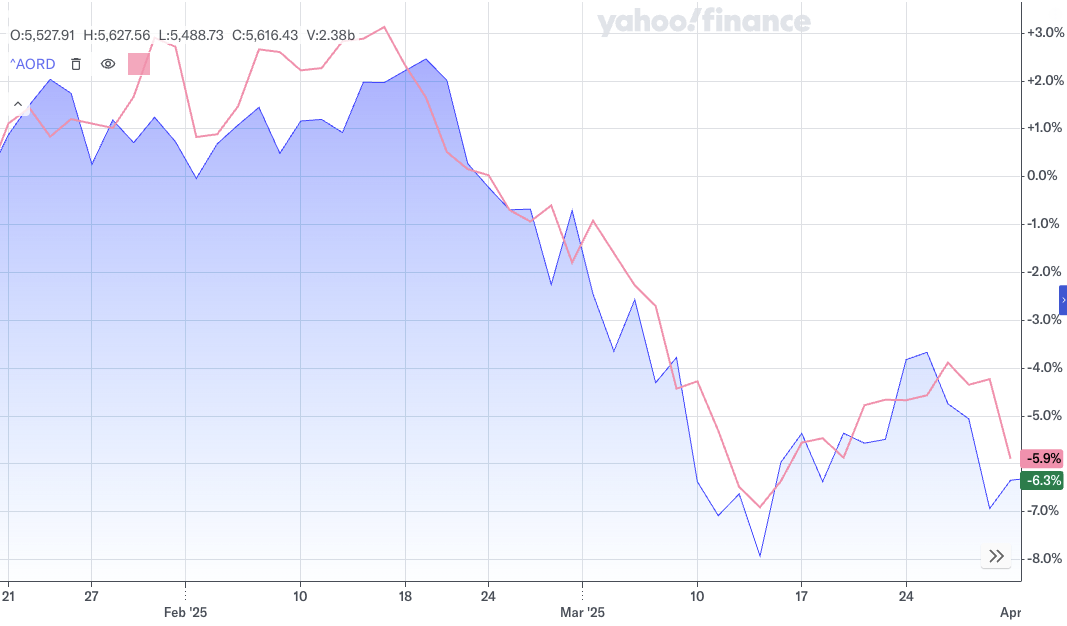
The decline in share market values continued in March, with the All-Ordinaries index falling by 4.2% to close the month at 8,053.7 points. The Australian dollar remained steady, with 1 Australian Dollar currently buying 62.5 United States cents.
The Reserve Bank of Australia (RBA) board did not meet in March. However, the RBA board is widely expected to keep the target Cash Rate at 4.10% per annum when they meet today.
Global share market returns were generally weaker in March, with the United States Dow Jones Index falling by 4.3%, the London FTSE falling by 2.6%, the Japan Nikkei 225 falling by 4.1%, and the Hong Kong Hang Seng Index gaining by 0.8% for the month.
There is not much else driving global investment markets at present other than United States President Trump’s ongoing tariff announcements, with the chart below showing the performance of the United States and Australian share markets since the President took office in January.

Source: Yahoo Finance
In the middle of March investment markets were encouraged by suggestions the suite of United States reciprocal tariffs to be announced on “Liberation Day” this Wednesday would be not as extensive as first feared. However, optimism quickly faded, with the “off-the-cuff” car tariff announcement from the President on Friday.
For investment markets, Liberation Day is as much about being liberated from further tariff announcements, as it is the ongoing uncertainty on tariff policy that mostly risks undermining investment markets, business and consumer confidence.
However, we now also face possible retaliation from United States’ trade partners, and then the United States’ possible retaliation to that retaliation. Either way, it does seem that global investment market volatility will remain in the near-term.
In domestic news, the Federal Government handed down its Federal Budget and announced the Federal Election for Saturday the 3rd of May.
The Federal Budget itself had little to get excited about with the main features being “energy bill relief” payments for eligible households and small businesses, and a lowering of the lowest marginal tax rate from 16% eventually down to 14% (which somewhat interestingly is below the concessional tax rate for superannuation).
If you have any questions, please contact us on 1300 856 338.
This article is general information only and is not intended to be a recommendation. We strongly recommend you seek advice from your financial adviser as to whether this information is appropriate to your needs, financial situation, and investment objectives.
